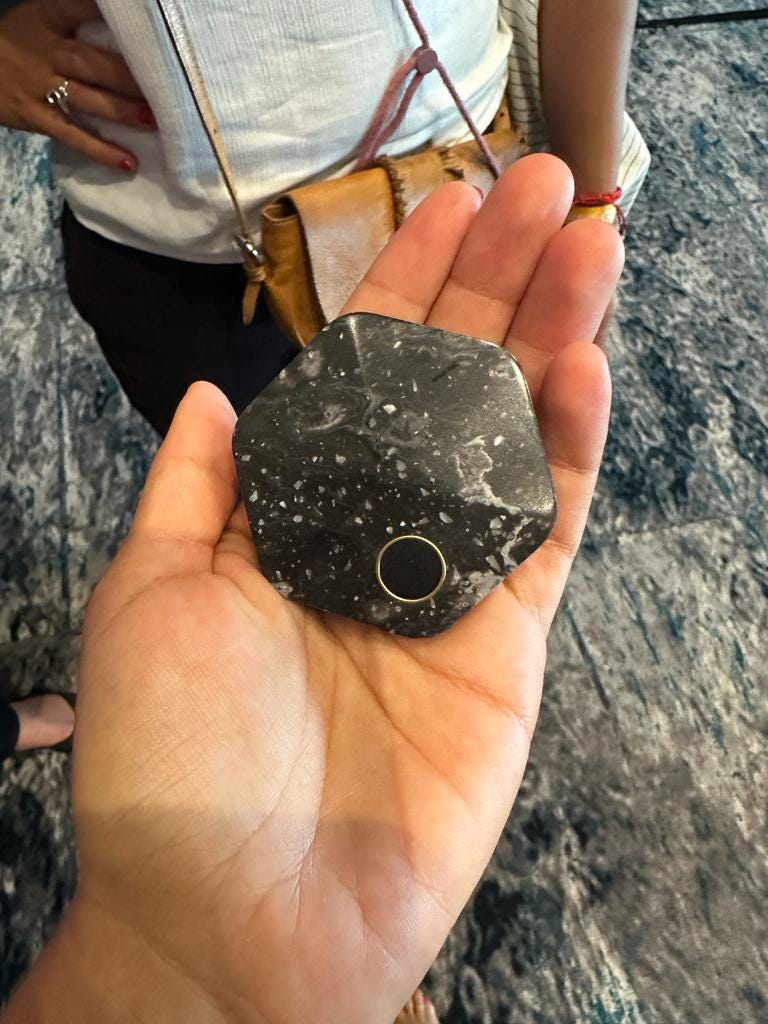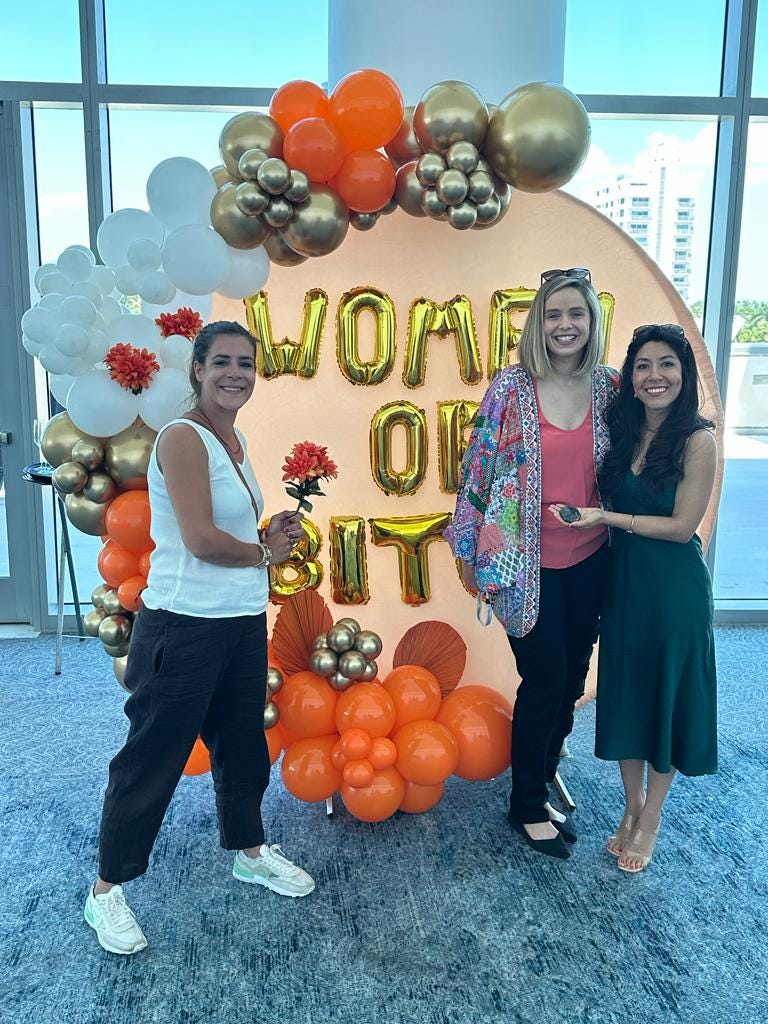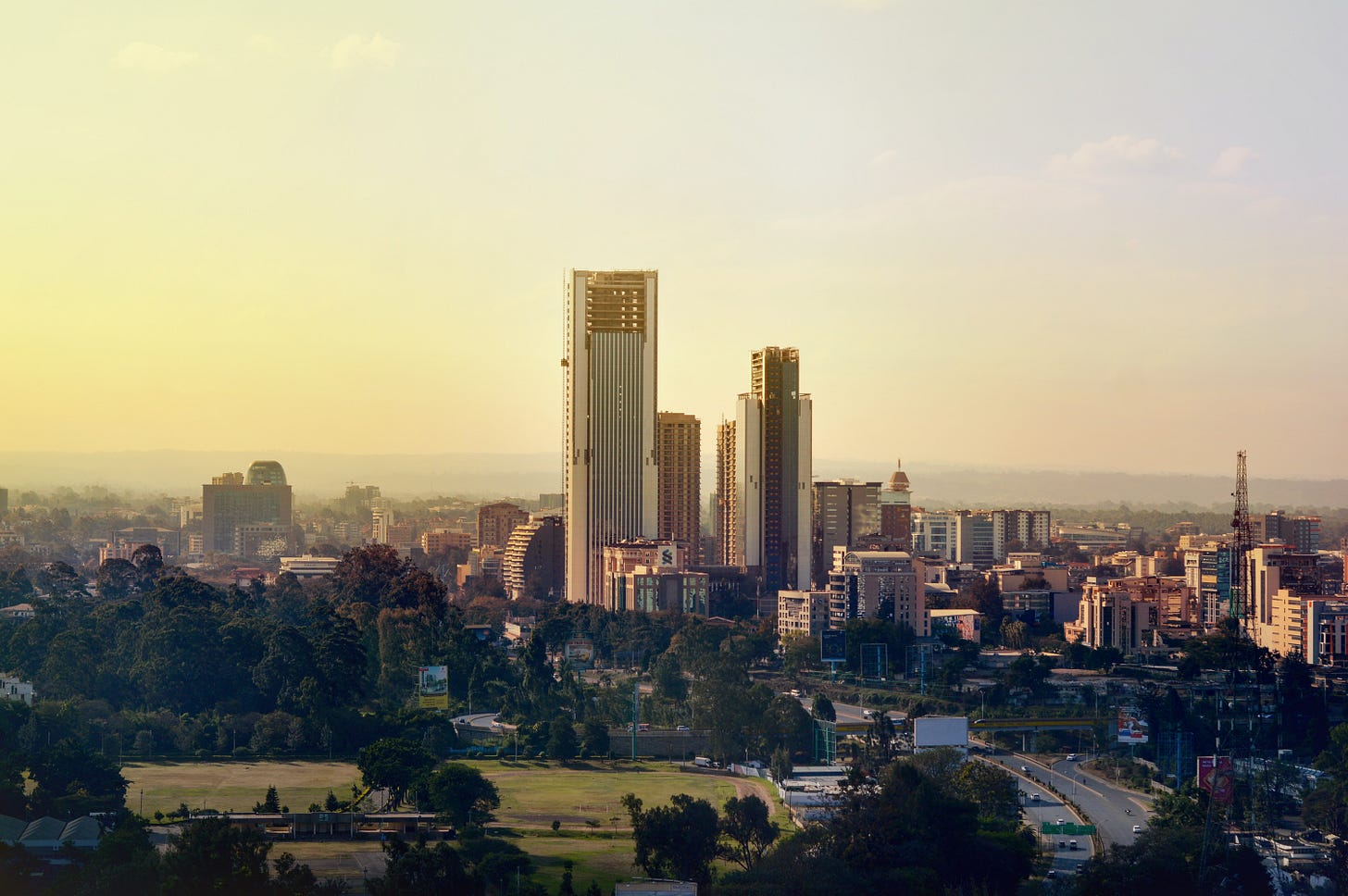Bitcoin Through The Lens of a Kenyan Woman, The Innovation of Bitcoin Mining, & Universal Access in Digital Currencies.
The world of Bitcoin is nothing short of fascinating.
Friends, hello!
This week I appeared in Krista Edmund’s Access Tribe podcast (thank you Scott Wolfe for suggesting me as a guest!).
For two hours, we talked about my upbringing, the experiences that shaped me and how they primed me for Bitcoin, Indigenous rights, the history of Hawaii’s occupation, marginalized communities, writing, and a whole lot more! Krista is lovely, warm, and curious. Her poignant questions made for an incredible conversation that I cannot wait for you to listen to.
On that note, the teaser for my upcoming appearance on The Progressive Bitcoiner is live. Check it out here.
I was also accepted into the external Bitkey beta testing program, which means I’ll be one of the very first customers to use the product before it’s publicly available. Bitkey is Block’s Bitcoin self-custody wallet that comes with a mobile app, hardware device, and recovery tools that help people easily and safely own and manage their bitcoin.
**They’ve now closed applications to join their beta program, but you can join their waitlist here and learn more about Bitkey here.


It’s been an exciting week for sure. Now, onto some intellectual goodies!
What Bitcoin Means To A Young Kenyan Woman.
Sharon Murugi is a young Kenyan woman from Cohort 4 of Bitcoin Dada, a “women-centric entity that is educating African women about Bitcoin.” She created this short 4-minute video for readers of the Notes From The Margin newsletter (thank you, Sharon!). In it, she shares a little bit about her Bitcoin learning journey, her experience in the space, and what Bitcoin means to her and the world.
Her energy is beautiful and contagious and bound to make you smile as soon as you watch her!
The Innovation Of Bitcoin Mining & How It Benefits Power Grids.
It’s a known fact that Bitcoin miners create heat and noise. But did you know there’s been a tonne of innovation in the ways that Bitcoin miners deal with excessive heat and noise? A few of these methods include:
Air cooling: uses fans to move air and cool off the ASICS (ASICS are small computers built for a specific purpose, in this case, mining bitcoin) but it’s still loud. This method is similar to the way your computer uses fans to keep itself cool.
Immersion: “You're actually dipping the Bitcoin miner, the computer, into a bath of mineral oil, and that [fluid] is moving the heat away from the Bitcoin miners” – Justin Orkney, Commercial Director at Standard Power & Sr. Advisor at Satoshi Action Fund. This method is less noisy than air cooling.
Hydropool: uses water but the miner is not immersed. Instead, it uses water to carry the heat away from the miner. It’s also less noisy than air cooling.
Of course, there are trade-offs to each of these methods, so miners will determine what type of operations they want to run (depending also on the resources available to them). Isn’t that interesting?
Now switching gears to Bitcoin mining’s unique characteristics…
These include the fact that mining is location-agnostic, scale-agnostic (meaning it’s not limited to one size of Bitcoin miner), and time-agnostic (meaning it can shut off at any time of the year and stay disconnected as long as needed).
“And so Bitcoin mining provides the opportunity to curtail the [energy] demand and then have it stay offline; especially with some of these longer duration storms that we're seeing. You know, heat waves that last a week or winter storms that can last a week or at least the weekend.
Bitcoin mining provides an opportunity to shut down essentially indefinitely, while [with] other customer technologies you really can't expect that of them. They're not able to perform in that way. And so that's what caught my attention with Bitcoin mining – they're so flexible in that regard. And it is very unique as a customer on the electric grid.” – Justin Orkney, Commercial Director at Standard Power & Sr. Advisor at Satoshi Action Fund.
Unbeknownst to many, Bitcoin mining has many positive attributes to forgotten communities, grids, and nations. You can learn all about it in Justin Orkney’s interview with Robert Breedlove, host of the “What Is Money” show.
**Fun fact: Justin Orkney was my partner in the “WHY ARE WE BULLISH” show hosted by BTC Sessions (aka Ben Perrin).
Bitcoin Vs. CBDCs: Analyzing Universal Access In Digital Currency.
We have transitioned into the digital age, which means money is experiencing a shift.
Actually, if we’re being honest and precise, the shift in money resembles a hard fork between closed money (like central bank digital currencies, or CBDCs for short) and open money (like bitcoin).
To understand their difference, think of CBDCs as the digital counterparts of a country's fiat currency (like the USD, euro, yen, etc.). Though CBDCs might use blockchain technology, they still belong to established financial systems and are governed by a country's central bank.
Sure, CBDCs can help “modernize outdated payment systems, streamline monetary policies, and offer faster digital transactions. However, they also come with challenges. Their centralized nature could result in access barriers, making them less inclusive with privacy concerns.” — Susie Violet Ward, Bitcoin journalist and Financial Analyst.
These barriers and restrictions, which would likely be programmed into CBDCs, include:
I don’t know about you, but these restrictions paint a grim, Orwellian world to me.
Bitcoin on the other hand is the opposite of barriers, conditions, and restrictions. It is a decentralized, open-source digital currency that operates independently of any central authority or government.
It is available 24/7 to anyone, anywhere in the world. You can send transactions through the internet, radio frequency (just discovered this), or text messaging to anyone. It’s neutral money that democratizes financial access to billions of people vs. applying restrictions to them like CBDCs do.
As the world becomes increasingly digitalized and global, our money will have to represent the shift in history and economics we’re experiencing. The battle between CBDCs and bitcoin continues. As it does, keep this one thing in mind: The difference between CBDCs and bitcoin is how much freedom you get with your money. Choose your money — and future — wisely.
That’s it, friends! Thank you so much for showing up to today’s newsletter. I hope you get to enjoy the rest of your Sunday. I know I will. I’m off to catch a ferry with my family as I think about this idea:
“When you feel the suffering of every living thing within your heart, that is true consciousness.” – anonymous
Have a wonderful rest of your day!
Until next week,
Ayelen xx
Support the newsletter by sending:
Bitcoin donations ONCHAIN: bc1qa4dglpm6ejy72wsg9ft3nlzvdtcehfdal9wvh4
Bitcoin donations on LIGHTNING: ayelenosorio@coinos.io
Dollar donations: go to Paypal here.



